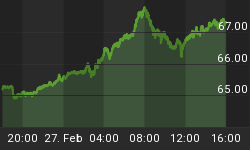The cryptocurrency community is having a bit of a laugh right now recalling a statement from Jamie Dimon, chairman and CEO of JPMorgan Chase, from a couple of years ago to the effect that if you’re dealing drugs in places like Venezuela, Ecuador or North Korea, “you are better off doing it in bitcoin than US dollars”.
Especially now, since a ship seized last week with $1.3 billion in cocaine on board has just been outed as belong to a fund run by JPMorgan Chase.
On July 4th, the United States Customs and Border Protection (CBP) agency in Philadelphia seized a cargo vessel with nearly 20 tons of cocaine on board with a street value of about $1.3 billion.
It was the largest cocaine bust ever carried out by the CBP.
To put that into perspective, the UN Office on Drugs and Crime says the 17.9 metric tons of cocaine on board the ship was more than the total amount of the drug that passed through Africa between 2013 and 2016. In a single shipment. As it turns out, the vessel, the MSC Gayane, is owned by client assets in a maritime strategy offered by JPMorgan Asset Management. It’s operated by Switzerland-based Mediterranean Shipping Company (MSC).
According to an online ship tracker, the ship sailed under the Liberian flag and had previously traveled through the Bahamas and several South American countries. When it was seized, it was en route to northern Europe.
But JPMorgan isn’t defending itself here, though Bloomberg has boldly wondered whether this means that JPMorgan “might lose a drug ship”. In fact, the bank has remained entirely tight-lipped. It doesn’t have operational control over the vessel. It only financed the purchase of the ship for $90 million. As far as it’s concerned, the bank’s hands are clean.
Related: What Would You Do If You Found A Wallet On The Street?
The drugs were initially found in mid-June by border agents before the CBP officially seized it.
According to ABC News, so far, at least six crew members from Serbia and Samoa have been charged with conspiracy to possess cocaine aboard a ship. The ship’s second mate reportedly told investigators that he had been promised $50,000 for handling the cargo.
So, are big banks, as they get into the physical side of “commodities”, now dealing in drugs, even if they’re not the operational masterminds?
It’s bound to be an issue, and JPMorgan isn’t alone.
In May, a Wells Fargo personal banker pleaded guilty to helping launder millions of dollars for drug traffickers like the Mexican Sinaloa cartel. Between 2014 and 2016, money-laundering organizations recruited people who would open bank accounts for the cartel's drug money. In total, the operation laundered over $19 million dollars in narcotics proceeds.
A couple of years ago, Deutsche Bank was fined $630 million after authorities raided the bank’s offices over money laundering claims. Deutsche staff reportedly helped clients “transfer money from criminal activities” - as much as $10 billion - to offshore accounts.
By Michael Scott for Safehaven.com
More Top Reads From Safehaven.com:
















